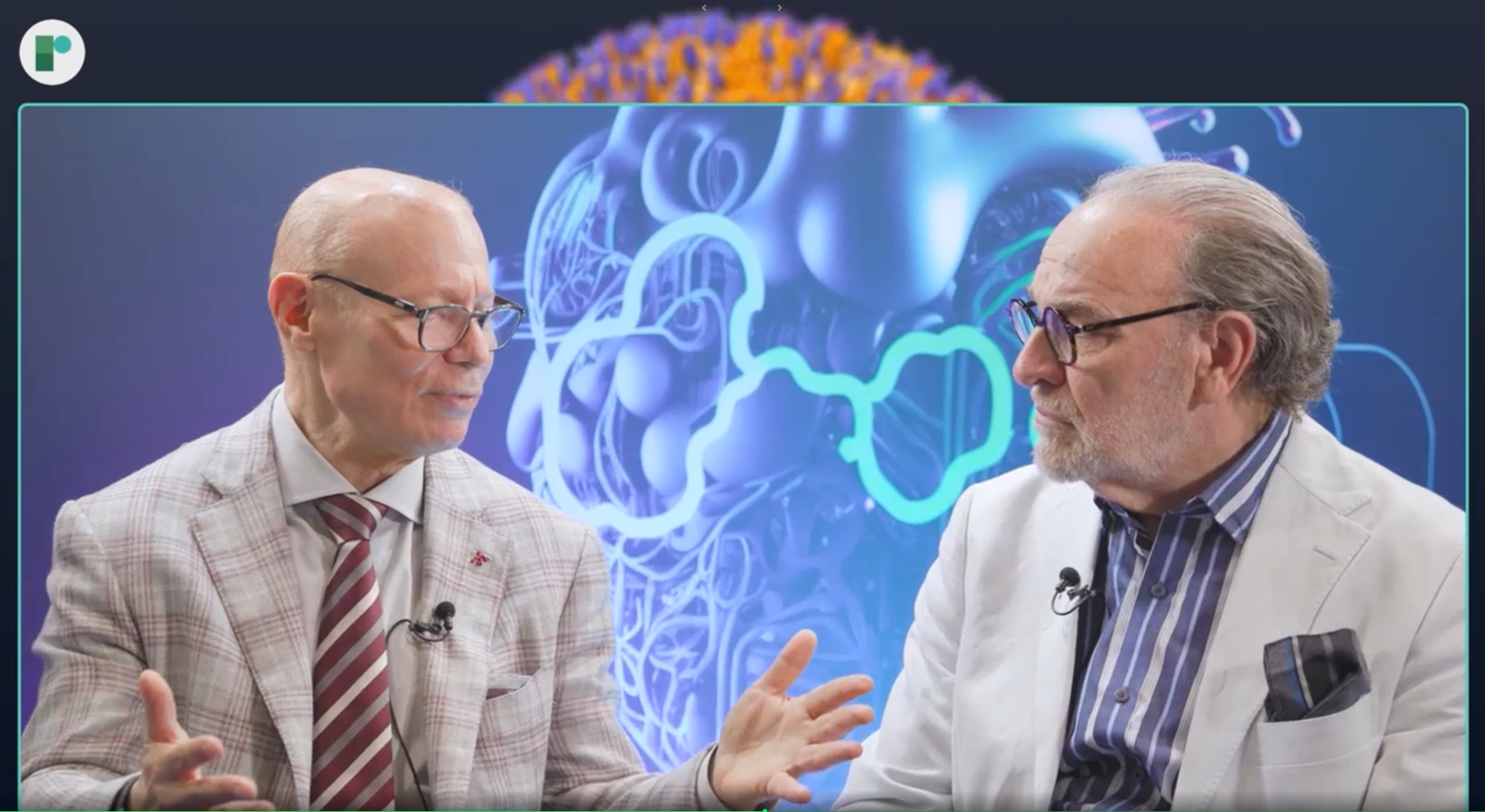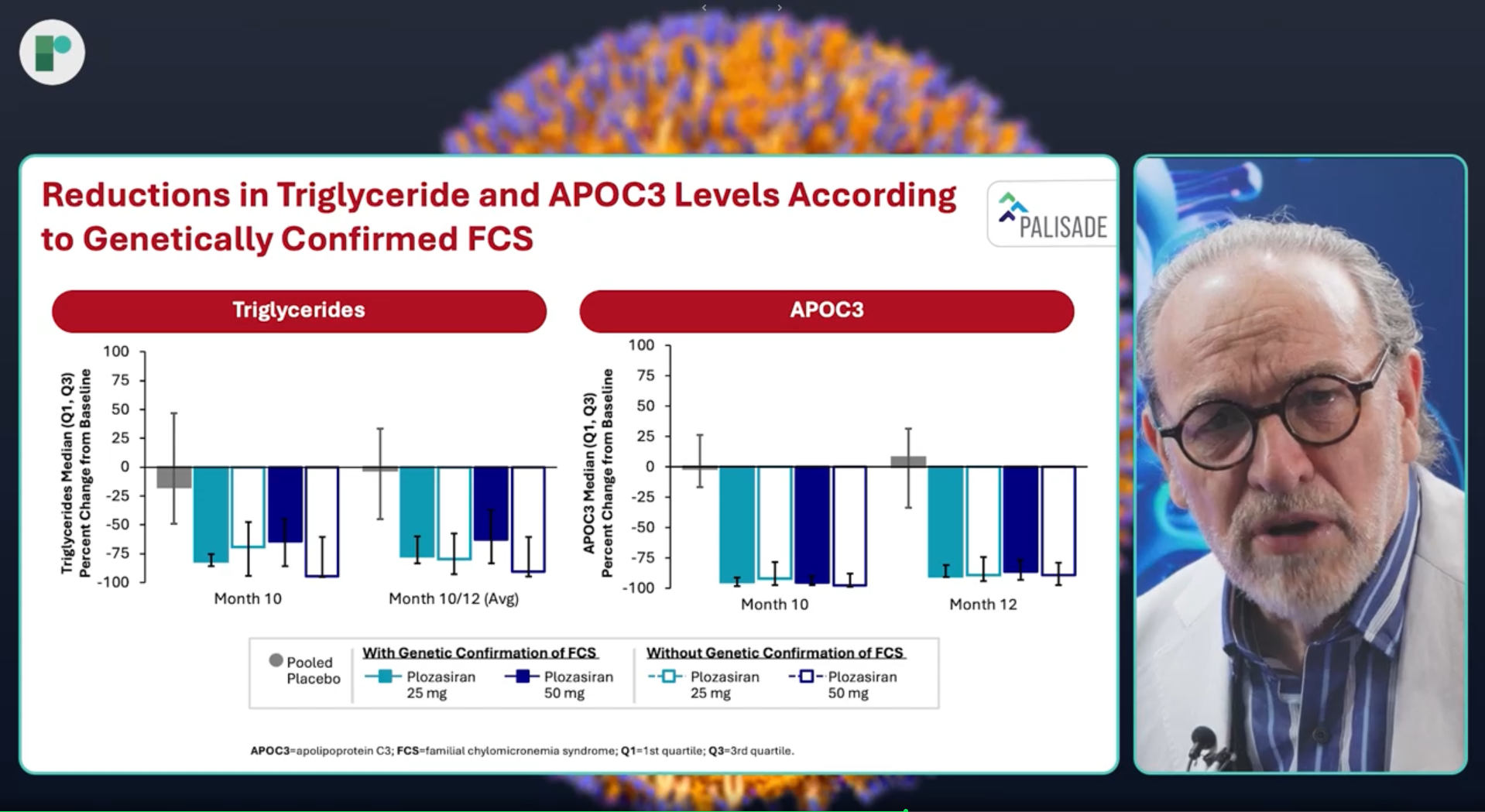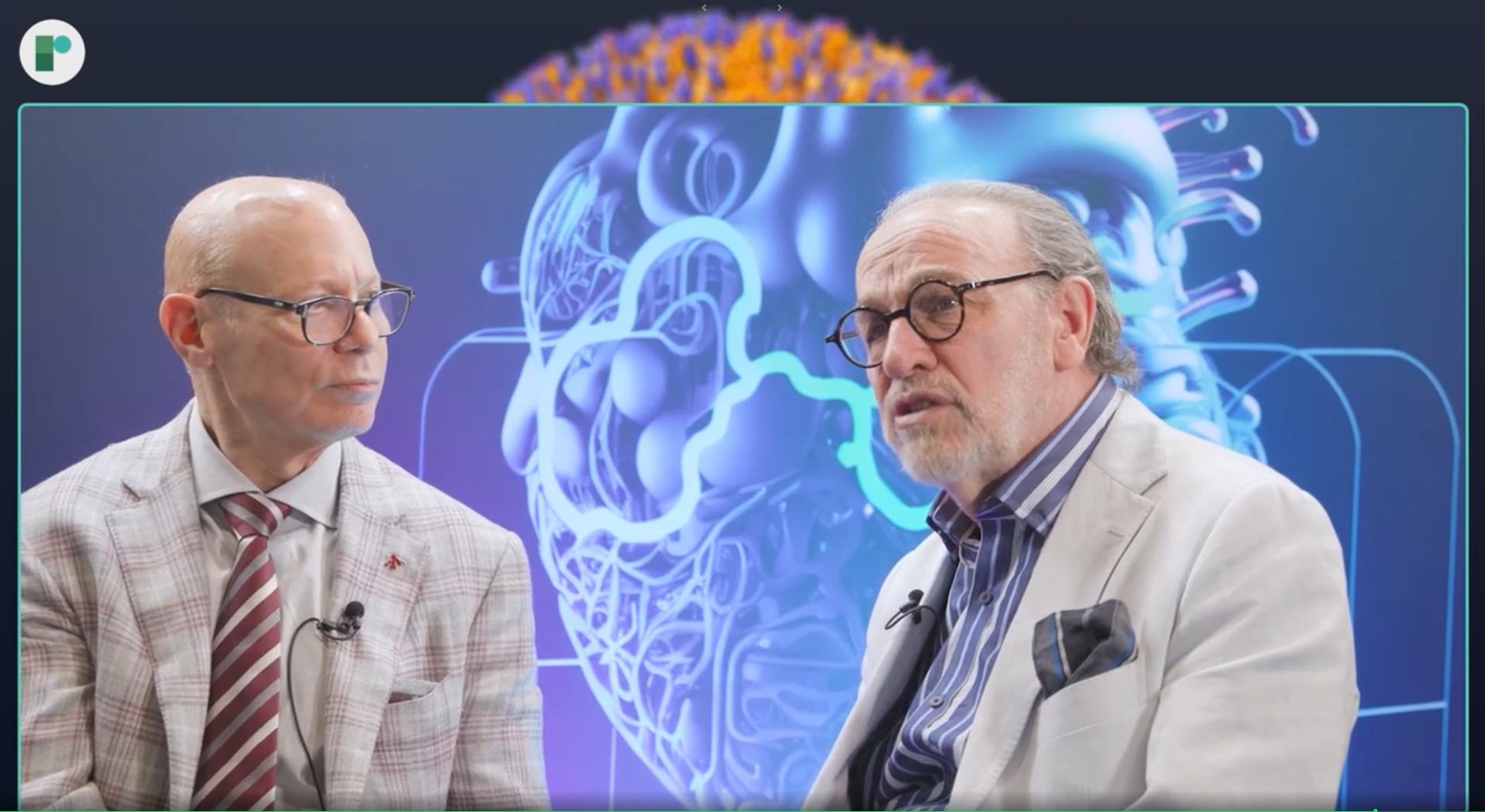Advancements in Triglyceride-lowering Therapies: Insights from ESC 2024
Published: 02 September 2024
-
Views:
 2672
2672
-
Likes:
 7
7
-
Views:
 2672
2672
-
Likes:
 7
7
-
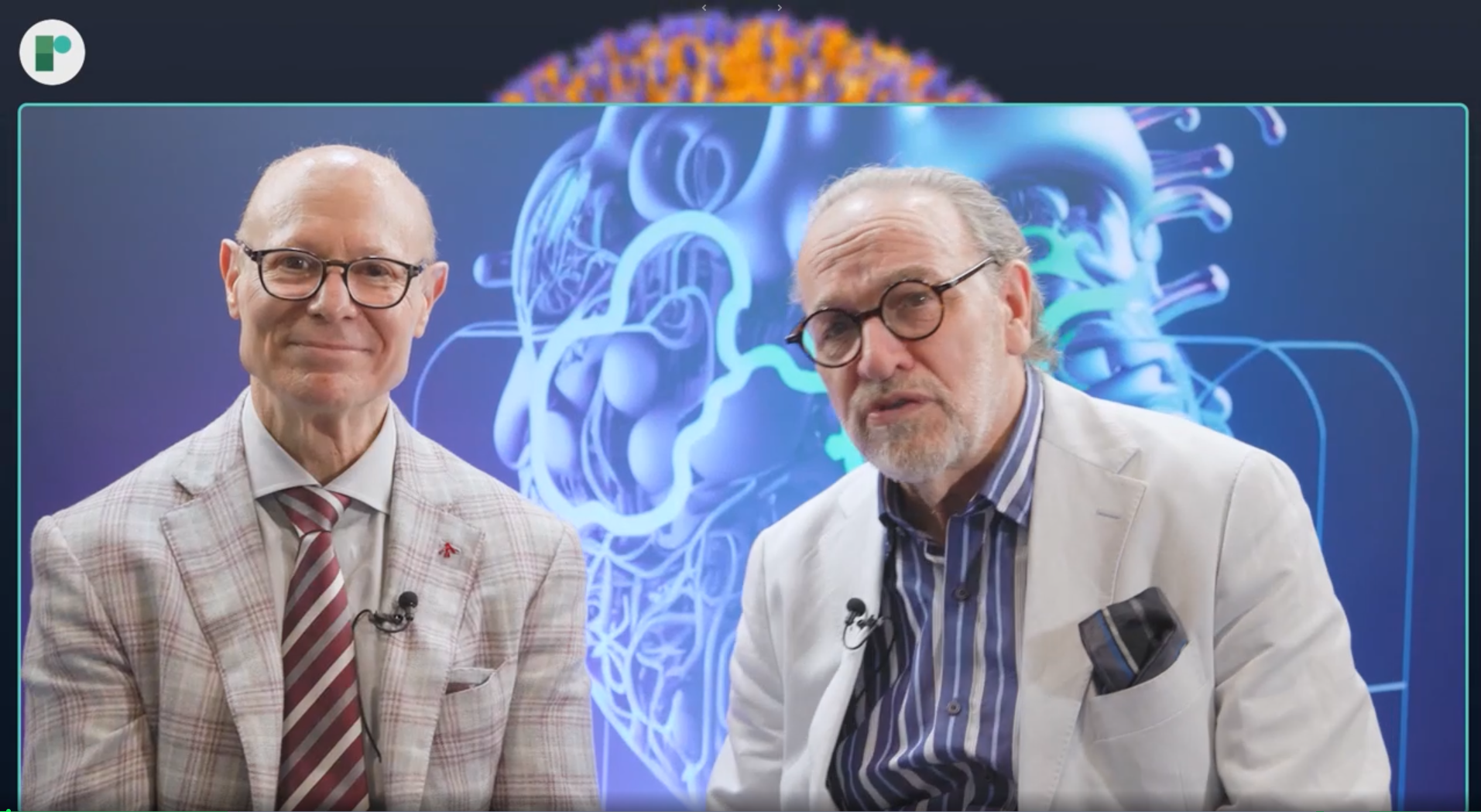 7m 16sPart 1 Severe Hypertriglyceridaemia: Pathophysiology and Practical Management Gerald Watts, Robert Rosenson
7m 16sPart 1 Severe Hypertriglyceridaemia: Pathophysiology and Practical Management Gerald Watts, Robert Rosenson
-
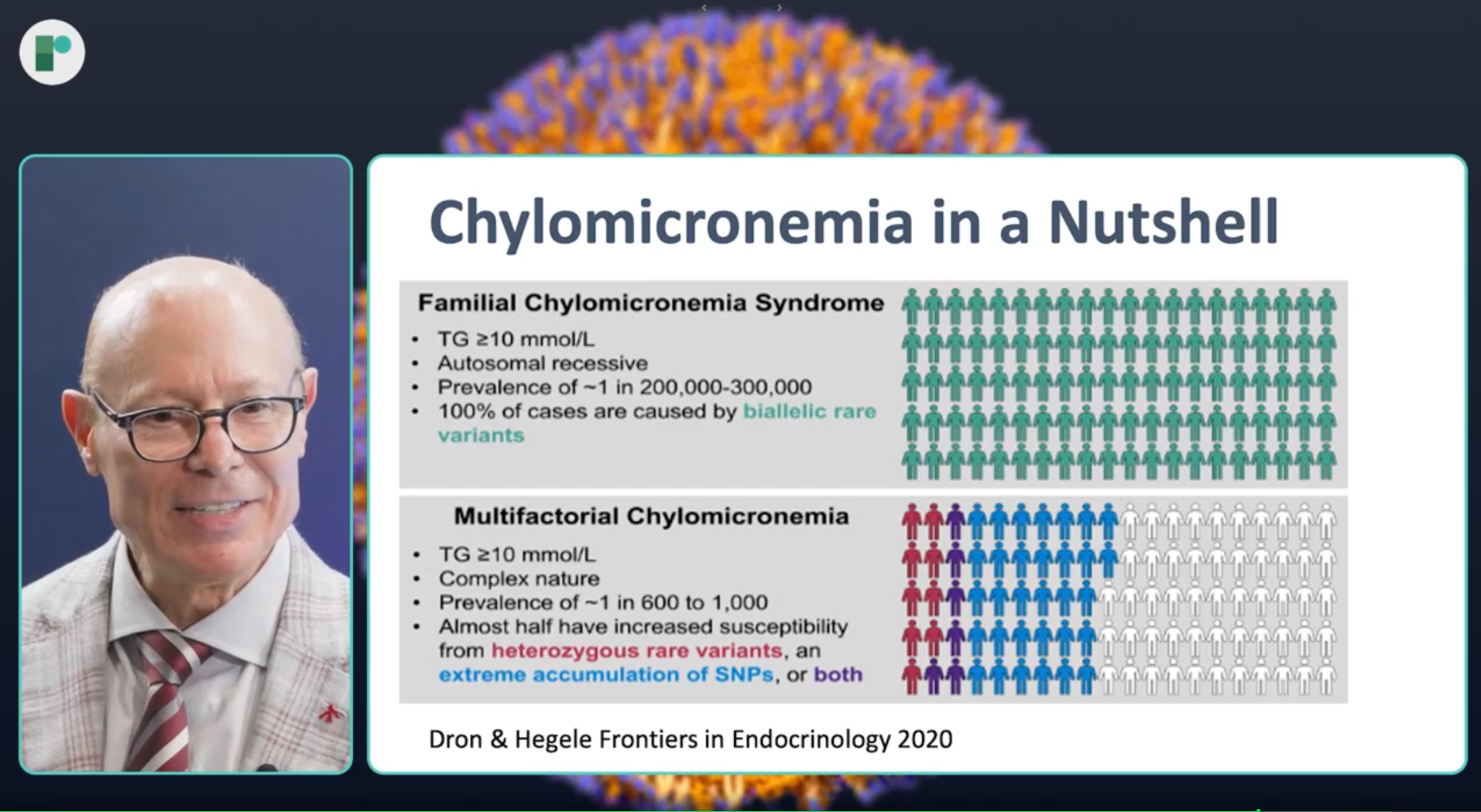 7m 27sPart 2 Severe Hypertriglyceridaemia: Risk Factors and Risk Assessment Gerald Watts, Robert Rosenson
7m 27sPart 2 Severe Hypertriglyceridaemia: Risk Factors and Risk Assessment Gerald Watts, Robert Rosenson
Overview
In this video series, recorded at ESC 2024 in London, Prof Gerald Watts (University of Western Australia, Perth, Australia) is joined by Prof Robert S Rosenson (Mount Sinai Icahn School of Medicine, New York, US) to discuss developments in triglyceride-lowering therapies.
The faculty consider triglycerides as a risk factor for cardiovascular disease and explore the relationship between triglycerides and the risk of acute pancreatitis and ASCVD. In addition, the series covers familial chylomicronemia syndrome (FCS), including the role of genetic testing to identify patients through risk assessment.
The faculty also review PALISADE, a phase 3 trial of investigational plozasiran in patients with diagnosed FCS, that concluded that patients with persistent chylomicronemia who received plozasiran had significantly lower triglyceride levels and incidence of pancreatitis than those who received placebo. Finally, the discussion centres on the potential diagnostic criteria for access to plozasiran.
Learning objectives
- Recall the primary and secondary outcomes from key triglyceride-lowering trials presented during ESC 2024
- Discuss the current and future implication of trial results to clinical management and practice guidelines
More from this programme
Part 1
Severe Hypertriglyceridaemia: Pathophysiology and Practical Management
Profs Watts and Rosenson consider how triglycerides are a risk factor for cardiovascular disease. Prof Rosenson notes the lack of effective treatment options to lower triglycerides to the levels necessary to reduce cardiovascular events and highlights the need for new novel therapies to both reduce triglycerides and acute pancreatitis.
Part 2
Severe Hypertriglyceridaemia: Risk Factors and Risk Assessment
The faculty explore the relationship between triglycerides and risk of acute pancreatitis and consider a range of factors that determine whether a hypertriglyceridemic individual is susceptible to pancreatitis.
Part 3
Genetic and Phenotypic Basis of FCS
The faculty consider the detection of familial chylomicronemia syndrome (FCS), including the role of genetic testing and simple tools available to help identify patients through risk assessment.
| 1 session | |
| Genetic and Phenotypic Basis of FCS | Watch now |
Part 4
New Data in FCS: PALISADE Results From ESC 2024
The faculty provide a detailed overview of PALISADE, a phase 3 trial of investigational plozasiran in patients with diagnosed familial chylomicronemia syndrome (FCS). The trial concluded that patients with persistent chylomicronemia who received plozasiran had significantly lower triglyceride levels and a lower incidence of pancreatitis than those who received placebo.
Part 5
PALISADE in Context: Implementation in the Real World
Profs Watts and Rosenson conclude that PALISADE is the first trial that has demonstrated that triglyceride-lowering therapy could prevent acute pancreatitis. They note that over the longer term, use of the therapy may have a favourable effect on glycaemia and diabetes. Prof Watts asks what may be the diagnostic criteria for access to plozasiran.
Faculty Biographies
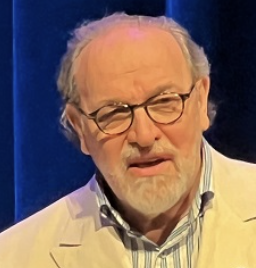
Gerald Watts
University of Western Australia, Perth, Australia
Prof Gerald Watts is Chair of the Familial Hypercholesterolaemia Australasia Network and a Senior Consultant Physician specialising in cardio-metabolic medicine. He leads the Cardio-metabolic Service in the Departments of Cardiology and Internal Medicine at Royal Perth Hospital and serves as Winthrop Professor of Cardio-metabolic Medicine at the University of Western Australia.
Previously, he trained at Imperial College and King’s College, London University, and was a scholar at Wolfson College, Oxford University.
His research focuses on lipid disorders, cardiovascular prevention, and improving healthcare delivery for high-risk dyslipidaemias, particularly familial hypercholesterolaemia and hyperchylomicronaemia. He has supervised several Masters, MD, and PhD students, post-doctoral research fellows, and holds multiple research grants with various collaborations.

Robert Rosenson
Mount Sinai Icahn School of Medicine, New York, US
Dr Robert Rosenson is a Professor of Medicine and Cardiology at the Icahn School of Medicine and the Director of Metabolism and Lipids for the Mount Sinai Health System. He is an American Board of Internal Medicine-certified cardiologist and a member of numerous cardiovascular organisations and medical societies.
Previously, he completed a Research Fellowship in Lipoprotein Metabolism at the University of Chicago Hospitals in 1990, a Cardiovascular Disease Fellowship at the University of Chicago Medical Center in 1989, and an Internal Medicine Residency at Harvard University Medical School, Brigham and Women's Hospital in 1986. He earned his Medical Degree from Tulane University in 1983.
Internationally recognised for his research, Dr Rosenson focuses on the effects of novel lipid-lowering therapy, hypoglycaemic therapy, and antihypertensive agents on inflammation, thrombogenesis, and rheology. His laboratory was the first to demonstrate that statins reduce pro…






